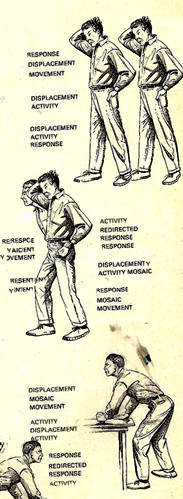There is a problem with names, I think. I don’t like to write them, though I know full well why we should. It is also just knowing the burden of my own name, or rather the burden of seeing its repetition: how then to burden another person with this uncomfortable situation of existing as a someone in particular, defined by all that? Or rather, not only to write the name, but also to do something to it and, as a consequence, its bearer? To love, or something even more or less?
Lauren Levin’s chapbook Keenan:, from Lame House, 2011, is up against this problem:
. . . .Don’t worry,
your name won’t represent your actions:
in fact, I’m writing people’s names less
the more I know them.The book is full of names, names on a number of its pages, and named a name, and so I guess it is a book also full of the problem of knowing people and needing to name them, or finding the condition of knowing and naming another insufficient. Even to presume to know another person, or want to, is a limitation, like definition or diagnosis: “And isn’t diagnosis horrible? / gluing all the people in here.”
But moreso than the problem of names, and also the problem of knowing, is the problem of what happens when we dislocate ourselves into another: that untrustworthy condition of wanting, very much “to feel you with tone” and also “some words I can sense the obsession in” and
you the whole essence of someone whose transposition onto the idea
of its essence becomes a dull flush rising to my lid
and back, at the movement of this to yourself,
how one person has stroked recapitulation,If we cannot trust, not even barely, the naming of a person (“the real names are a flamboyance of a lived thing, not what I hear”), and we know this other only through a kind of hopeful and gluey limitation like diagnosis, what then are we when we have leaked into another, and our thoughts are there with that other, either hoping to own or become him or her or indulge in a process of extreme empathy also (empathy's own) “pervy memory”: what then, to trust?
Or rather, I should back up, to the very first page of the poem, on which the last line sums these failures: “my ideology of non-empathy is a claim to non-elegy.” That is, I think, there is in this the problem of desire like how desire so often makes an empathic error: not empathy at all, but (for my own lack of a less used-up term), projection. Loss then (or not getting exactly what, or who, we want or think we have wanted) is less valorized than prodded here, and the specifics are made big: “the way I like to read about anyone / who could be being us.”
***
(For most of the time I was writing this, Hazel was sprawled out in the middle of the bed, in a manner she described as "like an otter in the sea." She said, "Anne, you must use in that review the word 'mirror,'" and while 'mirror' is an entirely appropriate word to use to understand this poetry, I have failed in finding an easy place for it. So rather, you, dear reader, must think of the word "mirror" at some point while thinking of the problems herein.)

not a bio, right Anne? Good. Warn me of any bios; suppress them.
ReplyDeletePoet’s Choice is a poetry publishing brand. We are creating an open platform & a community for poets. Poets from all across the world can get their work self published.We have published three books till now & are on the verge of launching our next book in the first week of June. All our books are available on Flipkart & Amazon websites.Our book launch videos are all viewable on Youtube –“Book launch of Poet’s Choice” & we also have a facebook page called “Poet’s Choice”.
ReplyDeleteWe write to you today because we are interested in connecting with poets,poetry lovers,readers & reviewers .
You may connect with us on poetschoice@hotmail.com.